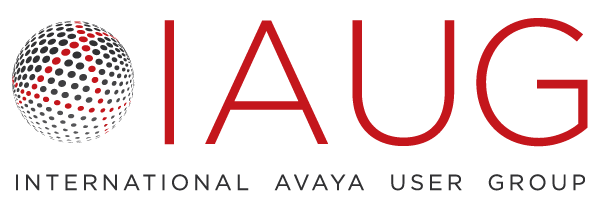Like many IAUG members, Lori Wodrich begins her workday with a plan in mind, only to find herself scrambling to address an “it-can’t wait” crisis like a network outage. “That’s a daily thing for those of us in voice technology,” said Wodrich, an IAUG board member who participated in an interactive September 23 webinar, “Busily Unproductive – How to Get the Important Work Done With Less Stress.”
Keynote speaker Cleonie Mainvielle suggested “unpacking” the daily schedule and creating buffers deal with unexpected events. “As professionals, we are overachievers,” she said. “But rather than being stressed trying to respond to everything, it’s better to take a few minutes during the day and give yourself some breathing room.”
As owner and founder of Inspired Outcome, a productivity, and organizing business, Mainvielle works with female entrepreneurs and professionals to address time-wasting tasks and structure days, weeks and months to support goals and ambitions. For instance, she suggested recognizing and honoring the natural ebbs and flows of personal energy. Whether you are a “morning or an evening person,” you can schedule your most important activities at a time when your daily and weekly energy levels are high.
“That really resonates with me,” said IAUG board member Adriane Davis, who hosted the virtual event presented by IAUG’s Empowering Women in Technology Community. “I made changes to my schedule because mornings are not for me. In fact, I can concentrate and get things done in the middle of the night.”
Three strategies
In her talk, Mainvielle presented three strategies for accomplishing important tasks while reducing personal stress and avoiding the feeling of being overwhelmed. “You want to manage competing priorities and be able to log off work at the end of the day without feeling guilty,” she said.
1. Live with intention. Think about what needs to happen during the day or week to make you feel satisfied and accomplished. Rather than showing up each morning and wondering what will happen at work, take a deliberate approach and focus on what you would like to get from your investment of time.
If there are certain daily tasks you dislike, consider putting them in a broader context, Mainvielle added. “For instance, I didn’t want to take time to do the laundry,” she said. “Then I reframed my thinking to make this task more meaningful by giving my family a sense of comfort and security.”
Continuing that thought, Wodrich said replying to an email at work can be more than just giving a simple answer. “It’s an opportunity to create a good user experience and build a relationship,” she said.
2. Plan. If you feel overwhelmed at work, this is the game changer, said Mainvielle. “Planning is the key to getting the important things done, so you can close your eyes at the end of the day with your head on the pillow.”
Even if you already prepare a daily plan, Mainvielle suggested conducting a personal time study, logging how you spend your hours for four to seven days. “Your memory is not a reliable source, so write things down,” he added.
Next, you should prepare a time budget that incorporates work, family and personal time. “I also recommend planning your time at least two days in advance,” she added. “It keeps you from scrambling around so you show up at meetings prepared and ready to contribute.”
3. Evaluation. This often overlooked step helps you find value when you miss deadlines and personal goals. “Spending 10 to 15 minutes a day reflecting and evaluating will help you gain more control over your life, rather than just being in a reaction mode,” she said. “You can celebrate your wins and think about how you can replicate them in the future.”
Wrapping up the session, Mainvielle suggested three good questions to consider:
• What do I need to stop or start doing to reduce my feelings of stress and feel satisfied and accomplished?
•What additional support do I need to support the BEST version of myself?
•What mini-experiment can I try over the next seven days to get better results?
As she said, “Our daily lives need to provide us with meaning, purpose and joy.”

